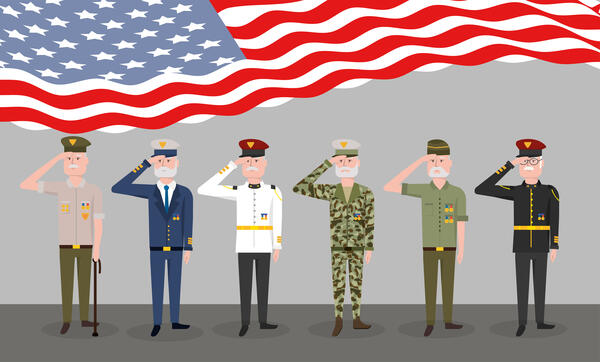
Why Veterans Are a Natural Fit for Leadership Roles in Healthcare
Doctors, nurses, hospital staff, and patients rely on strong healthcare leadership more than some may think. Healthcare leaders influence everything from policy and budgeting to the treatment plans that hospitals and clinics use. Finding the right people to fill these roles can affect many aspects of a healthcare facility's operations.
However, some leadership roles are best filled by people who previously had another career. That's where military veterans come in, as they have a strong foundation to work in healthcare. Follow along as we explore why veterans are a natural fit for leadership roles in healthcare.
Reasons Why Veterans Are Perfect Healthcare Leadership Candidates
Life after a military career often entails switching to a new career that utilizes some of the same skills. However, finding a career that aligns with the values and disciplines you learn in the military can be difficult. That's why many military veterans find their way to healthcare, which shares many parallels with military work.
Both are selfless careers that prioritize representing and helping others. Veterans are perfect candidates for many healthcare management and leadership roles for many reasons, such as:
1. Inherent Discipline
It's challenging to succeed in the military without a high level of discipline. Military personnel have many important duties that affect their comrades and the people they serve and protect. Naturally, discipline is equally important in healthcare, where doctors and nurses hold their patients' lives and health in their hands.
Seldom do military veterans find career paths that hinge on discipline as much as their military careers did. Like military personnel, healthcare workers work long hours and must manage many key responsibilities. Balancing the long hours and often stressful nature of the work requires strong discipline and patience.
Such discipline is equally necessary in college and advanced degree programs as it is in the workplace. That's especially true for routine-oriented veterans who want to get as much out of their healthcare career as possible.
2. Adaptability
Unpredictability and occasional stress are among the strongest parallels between healthcare and military work. Military and healthcare workers alike must adapt to new situations as quickly as possible to help those in need. The problem-solving and critical thinking skills needed to succeed in the military are just as essential in healthcare.
Such skills extend to healthcare leaders, who must often make decisions that affect other hospital personnel and patients alike. A veteran's adaptability translates well into healthcare, but it must also evolve to fit the new setting. Naturally, some skills and situations are unique to healthcare.
Luckily, veterans are primed to learn these skills and adapt to the clinical environment. Open-mindedness and adaptability go hand in hand, both in healthcare and in the military.
3. Upward Motivation
Military veterans understand the importance of working hard to earn prestigious titles and ranks. They often recognize the hard work it takes to work their way toward titles they've dreamed of for years. This translates well to healthcare, where becoming a leader takes years of hard work.
For example, they can view military-friendly master's programs as a necessary stepping stone to advance their careers. Veterans can apply the same work ethic that it takes to become a staff sergeant or captain to their healthcare journey. That's something that many healthcare leaders will recognize in veterans working their way through the ranks.
Title and rank mean a lot to many military veterans. Because of that, many veterans observe and look up to their leaders, whether they're generals or a health unit coordinator. Recognizing and emulating the skills it took to reach such ranks can mold great future healthcare leaders.
4. Veterans Have a Strong Base
Basic medical knowledge is ingrained in most United States military personnel. Of course, some take it further and become field medics or dental corpsmen, but basic medical knowledge is part of most military training. This basic knowledge, paired with the versatility and work ethic that veterans have, serves as a strong foundation.
For example, entering medical school is much easier if you have some basic medical knowledge. Military training emphasizes many key skills, such as technical proficiency, teamwork, fitness, and communication. Each of these skills can prepare a veteran to succeed in healthcare at any level.
Sure, some things, such as combat and survival skills, don't necessarily translate to hospitals and clinics. However, having a deeply ingrained skill set makes adopting new skills much easier.
Veterans Make Perfect Healthcare Leaders
Healthcare offers many leadership roles, which affect staff and patients alike. Hospital and clinic staff rely on strong leaders who set a positive, efficient tone for everyone involved. Veterans boast many of the essential skills that healthcare leaders need, such as discipline, critical thinking, and adaptability.
Today, veterans can find many military-friendly healthcare degree programs. Taking the first step can set you up for a successful healthcare career. Luckily, military veterans are primed for the responsibilities needed to work toward healthcare leadership roles. Veterans are natural fits for healthcare leadership roles, and everyone involved can benefit from their influence.